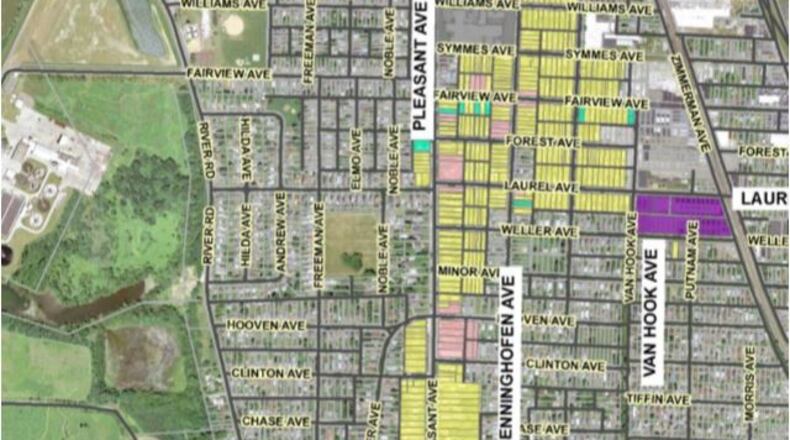The properties would be reclassified from a mixture of residential, commercial and industrial districts to a new “Traditional Neighborhood” district.
In total, about 198 acres of land would be changed. The city sent notices of the public hearing to about 1,500 property owners, “so we will be calling people that have reached out to us about the rezoning to let them know the rezoning will be tabled,” Planning Director Liz Hayden informed planning commissioners. The city also is posting a notice on its website.
The changes are similar to what Hamilton in October did in the Rossville neighborhood and a small part of Prospect Hill to the new zoning.
Zoning in the two areas does not accurately reflect existing conditions and way land is used in the neighborhoods, staff found, after looking at the areas and speaking with property owners in the areas.
The current zoning “describes moderate to high-density multifamily residential or suburban style commercial land uses,” staffers wrote to commission members. Rather than those conditions, “most … are occupied by single-family housing in a traditional neighborhood development pattern,” they added.
The benefit of switching to traditional neighborhood (TN) zoning is to better maintain and enhance buildings in those neighborhoods. With such zoning, the city can better “promote and protect the unique character and form of built-up areas within urban and traditional neighborhoods,” Hayden and Associate Planner Ed Wilson wrote, in describing the reasons,
Other benefits of the change, according to their report:
- When new buildings are proposed for a vacant property in the area, the new standards can ensure the new buildings are "consistent and compatible with the size, scale, character and form of the surrounding areas."
- Regulations can prevent buildings that originally were intended to be single-family homes from being converted into multiple apartments, "which are not suitable for such a change in density and intensity of the use."
- There can be more flexibility in the regulations "to allow for an array of land uses and increased density where appropriate conditions … exist."
- The change can encourage new kinds of use of older buildings "while retaining their historic integrity."
The city has four kinds of TN districts.
About the Author
